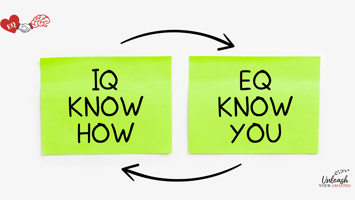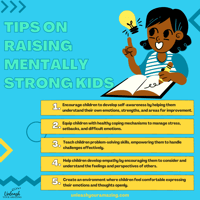Building Emotional Intelligence in Schools: A critical need for the future
 In today's fast-paced and technology-driven world, the need for emotional intelligence in education has never been more critical. As parents and educators, it's essential that we recognize the profound impact our school systems can have on shaping the emotional well-being of our children.
In today's fast-paced and technology-driven world, the need for emotional intelligence in education has never been more critical. As parents and educators, it's essential that we recognize the profound impact our school systems can have on shaping the emotional well-being of our children.
One glaring area where emotional intelligence is often overlooked is in the management of basic human needs, such as restroom breaks. Let me share a personal story to highlight the urgency of this issue. When my daughter was in fifth grade, she began experiencing severe stomach pains. After multiple doctor visits and specialist appointments, it was discovered that she was holding in her waste due to a fear of asking for restroom breaks at school. The rigid scheduling and reluctance of teachers to allow students to use the restroom had led to significant health consequences for her.
Now she still struggles with multiple health challenges; picks up every virus there is and is in constant pain. With the implementation of a 504 Plan, which provided accommodations for her needs, we were able to address these. However, the challenges persisted as she entered high school. Recently, we encountered a situation where a teacher was not following the accommodations, exacerbating her struggles and leading her to hate school and begin talking about dropping out.
As I dug into the saturation, what struck me the most was the teacher's use of a toilet seat as a restroom pass; a practice that not only seemed archaic but also appeared to discourage students from taking necessary breaks. In these challenging times, we need to be prioritizing the well-being of our students.
Beyond the physical implications, this incident underscores the need for a more holistic approach to education—one that nurtures emotional intelligence alongside academic achievement. In a world where digital distractions abound and interpersonal connections are increasingly mediated by screens, the ability to empathize, communicate effectively, and navigate diverse perspectives is more valuable than ever.
As we look towards the future, it's imperative that we prioritize the integration of emotional intelligence education into our school systems. This includes fostering an environment where students feel comfortable expressing their needs and concerns without fear of judgment or reprisal. Where students are embraced for who they are and taught to break the glass ceiling in their own unique way.
Achieving this vision requires a concerted effort from all stakeholders in the education system. Teachers must undergo training in emotional intelligence and be provided with resources to support students' social and emotional development. School administrators must create a culture of empathy and inclusivity, where students feel safe to express themselves without fear of judgment, retaliation or being belittled.
As parents, we also play a crucial role in fostering emotional intelligence in our children. By modeling empathy, compassion, and open communication in our own lives, we set an example for our children to follow. We must advocate for policies and practices that prioritize student well-being and create environments where all students can thrive, regardless of their background or abilities.
In conclusion, the incident with my daughter's restroom pass serves as a sobering reminder of the importance of emotional intelligence in education. It highlights the need for a paradigm shift in how we approach student welfare and underscores the urgency of prioritizing empathy, compassion, and communication in our school systems. By investing in emotional intelligence today, we can create a brighter and more inclusive future for the next generation.
Looking to understand your own emotional intelligence? Download our tips here. You can purchase a report that measures your current level of emotional intelligence here. This is the one science that we can impact by doing the work and building our awareness.




